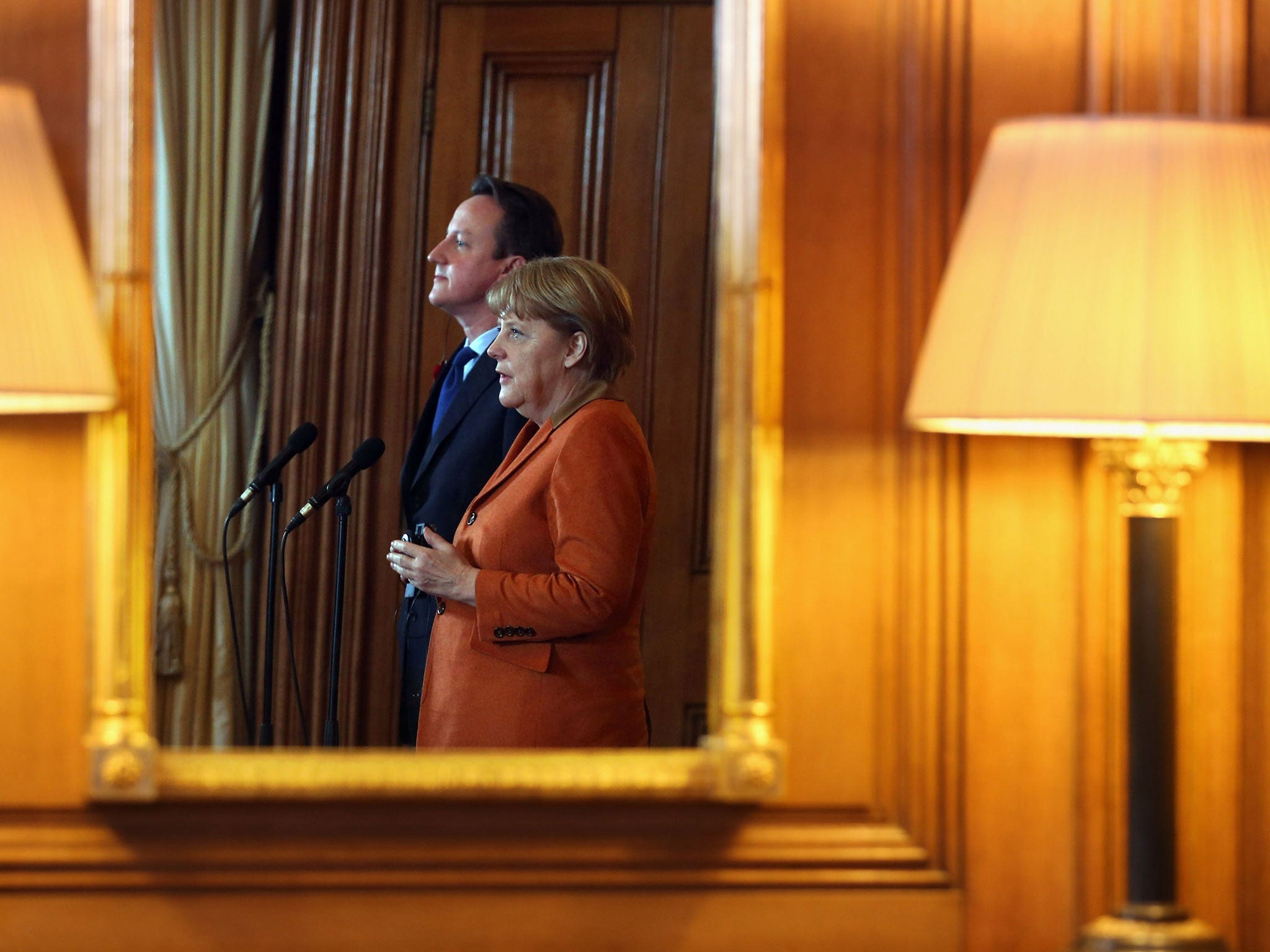I see a tall dark man but his life line is rather unclear
Predicting David Cameron's immediate future is easy, but unhappy voters and boundary changes may conspire against him in 2015


My good and late colleague Alan Watkins used to mark the end of the year with a column, in the style of an 18th-century man of letters, that was an almanac (or, as he called it, an Almanack) of predictions for the coming year. Well, I can't imitate the style, but anyone can predict the future, and the joy of doing it at this time of year, as the days start to grow longer, is that no one will remember when it turns out to be wrong.
What Watkins used to do, as in his last Almanack in 2006, was to assert that most of the predictions he had made the previous year "hath infallibly come to pass, viz., that in the month of March Master Chas. Kennedy will collapse of a fitt, brought about by an Excess of strong Spirits, and will devote himself no farther to publick Affairs..." and so on. He had predicted no such thing, of course, but who was going to go back and check?
If I look back I too could pretend that I had foreseen the two important moments of this year. But I did not. The idea that George Osborne would make the political mistake – whatever one thinks of the economics – of announcing in March a cut in the top rate of income tax came as a surprise. Still, I was not alone. Even though Ed Miliband had been forewarned by the Liberal Democrats through The Guardian, he still had an alternative reply to the Budget, known in his office as Plan B, ready in case the Chancellor failed to make the announcement.
Nor did I predict that Ed Miliband would enter into an unholy alliance with 91 Conservative backbench rebels in July to sabotage House of Lords reform. That was not so significant in itself, except that it had the consequence, which I also failed to predict, of Nick Clegg blocking the redrawing of constituency boundaries. That will cost the Tories about 20 seats at the next election.
The effect of this is partly concealed, because people do not realise how tilted against the Tories the existing boundaries seem. The figure to remember is that the Tories need to be four percentage points ahead in share of the vote to be the largest party in the Commons again. In the opinion polls they are currently 11 points behind, which is a lot of ground to make up, even with Ed Miliband as their opponent.
That, then, is where we start the prediction business at roughly the halfway point of this Parliament, with the Conservatives in two respects further at the end of the year than they were at the start from winning next time.
Armed with Watkins's astrolabe, then, the first prediction I make for 2013 is that the Prime Minister will make a speech about Europe next month. The second prediction is that it will satisfy no one and that Tory divisions will deepen. Because his position is that the UK must stay in the European Union, much of his party will feel cheated. They will recognise the echoes of Harold Wilson, promising a token renegotiation of terms to win a referendum for the status quo. Some will say, with Michael Gove, that we won't change the EU unless we threaten to leave and mean it.
To answer that, Cameron has a plan, which is not yet well understood. It takes the form of Angela Merkel. Cameron sees his good relationship with the German Chancellor, who is the most important person in shaping Europe's future, as his best hope in getting through the complexities ahead.
Many Germans regard the British as utterly baffling. Our views of Europe are as hard for them to understand as American views of guns are for us. They take the view that, if the British really want to leave the EU, the rest of the EU should let them, as we are obviously beyond reason. Merkel does not think like that, Cameron believes. She understands popular British Euroscepticism. I am told that she was so struck by a visit to Britain before she became chancellor that she has mentioned it four times to Cameron in recent Brussels meetings. She went to John Gummer's constituency in East Anglia when they were environment ministers, and was impressed by his enthusiastic support for the EU. "But the people there!" she exclaimed. Gummer's constituents had told her bluntly that they thought EU membership was bad for Britain.
Rather than dismiss them as mad, however, she sought to learn from them. So, if Cameron succeeds in persuading Merkel that the EU must yield real powers to member states he will have the people of Suffolk Coastal to thank. There are other reasons why the Prime Minister thinks Merkel will be flexible. Unlike some of her impatient compatriots, she wants the UK to stay in the EU, wanting us to lend weight to the Union's northern arc.
So there are reasons to think that, although Cameron starts from behind on the question of Europe that has almost destroyed his party once, he might be able to achieve more in the long years of negotiation ahead than the pro- and anti-European sceptics think. Although that does depend on Merkel winning re-election in September or October 2013. She is well placed in the opinion polls at the moment but, at this point, the crystal ball goes cloudy.

Join our commenting forum
Join thought-provoking conversations, follow other Independent readers and see their replies